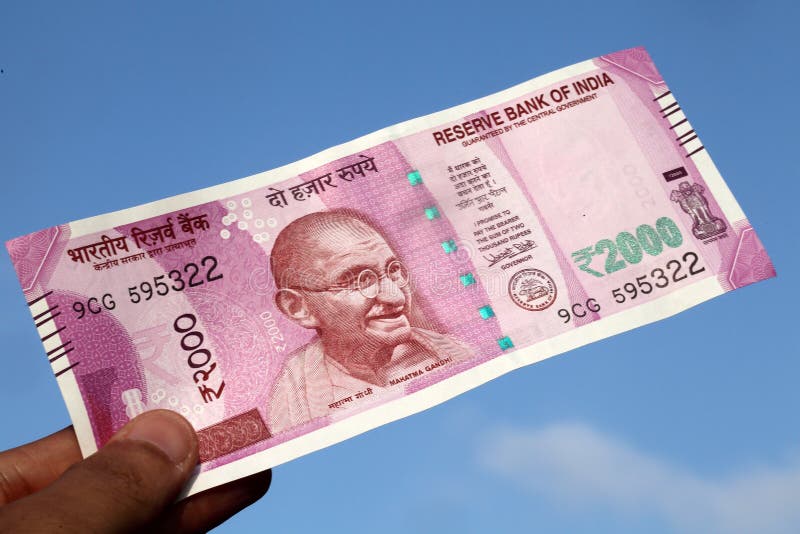The Income Tax Department Of India Needs To be Informed When Banks Receive Serious Cash Deposits Of 2,000 Rupees Notes.
The ongoing phrase out of the 2000 rupee note states thresholds for term and savings deposits and current account deposits are respectively set at 10 lakh and 50 lakh.
Banks are required to inform the income tax department of India about substantial cash deposits of 2,000 rupees notes. However, it is not essential to provide the exact currency value of the deposits.
The income tax department issued a tax notice to its customers who hold a savings account and invests more than Rs.10 lakh in a financial year as well as make transactions that sum up to more than 10 Lakhs must be addressed to the IRS.
How and when Banks are going to inform the income tax department
People with knowledge of the situation stated that this would put sizable cash deposits made during the ongoing phase-out of 2,000 notes under the notice of tax officials, who routinely trawl through the data to uncover tax evasion. For term and savings deposits, the reporting requirements are set at 10 lakhs, and for current account deposits, at 50 lakhs.
In addition to that, yet another individual who also spoke confirmed that this system for reporting has been in place for quite a while and is not a new provision as a result of the RBI’s decision to recall 2,000 notes.
Everyone is allowed to have a minimum amount of cash on hand for emergencies. But is there really a good reason for anyone to keep a lot of cash on hand, huge bills with low-interest rates? Particularly if the deposit is excessive compared to the income recorded on the tax return, that behavior should be supported by an explanation.
In response to what’s mentioned above said people believe, that question will thus be asked. According to the people who are acquainted with the operations of the tax department, it may be premature to assume that sizable cash deposits following the withdrawal of 2,000-note reports from banks will receive attention. Let people utilize their right to deposit cash.

Allow people to use their right to deposit cash. To frighten the populace is improper, people remarked. The Central Board of Direct Taxes (CBDT) and finance ministry spokespeople were emailed on Wednesday for comments but neither of them responded.
The tax administration has placed a strong emphasis on voluntary tax compliance, urging people to update their tax forms and reveal any financial transactions that may not have been disclosed. By updating their tax returns for prior years and adding back any income that was mistakenly missing or disclosing underreported profits, assets are able to take advantage of the e-verification program that was established in 2021 and the scheme for updating tax returns that were adopted in 2022.

According to Sudhir Kapadia, a partner in charge of tax and regulatory services at EY, people who have legal cash balances do not need to worry about making bank deposits. No matter the currency denomination, exceptionally substantial cash deposits must be recorded to the department in accordance with current regulations. Nothing about the RBI’s announcement of the 2000 note’s removal alters that fact.
Process of 2000 rupees withdrawal
Some banks are requiring IDs from persons who repeatedly try to convert 2,000 note denominations at the counter as a precaution, according to bankers. Shatikanta Das, governor of the Reserve Bank of India, is scheduled to meet with senior executives of private sector banks the following week to discuss governance issues. During the meeting, the progress of the exchange and deposit of 2,000 rupee notes will also be covered, and any issues encountered during the process are going to be addressed, a banker said on the assumption of anonymity.
Although the RBI has not imposed any restrictions on the number of Rs 2000 notes that may be placed, banks will be compelled to inform the income tax authorities about significant cash deposits of Rs 2,000 notes.
This would put sizable cash deposits made during the ongoing phase-out of 2,000 notes on the radar of tax officials, who routinely scan the data to find instances of tax avoidance.
As previously mentioned for the term as well as savings deposits, the reporting requirements are set at 10 lahks, and for current account deposits, at 50 lahks.But it is important to remember what happened during the time of demonetization, surely the setting this time is completely different but it’s also inevitable that people with black money will find a way to turn it into white, it’s always the common people that suffer from this implication.
It is also important to remember the features that were introduced to us with the 2000 rupee note, it was mentioned that the 2000 rupee note will come up with a built-in GPS feature, and if anyone what’s to hide the money or utilize it in an improper way then it will be easily noticeable.
Then why do we have to trade these notes and is banning and printing new notes an ultimate solution to removing black money from the market?
Proofread & Published By Naveenika Chauhan




